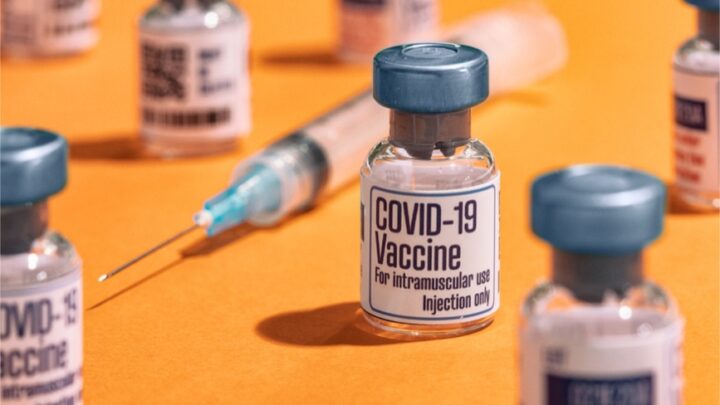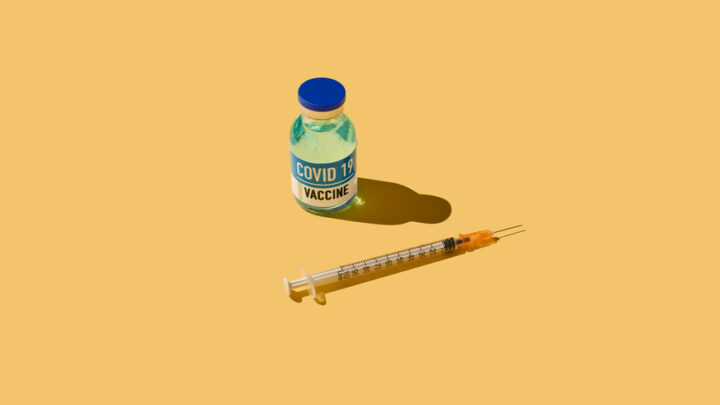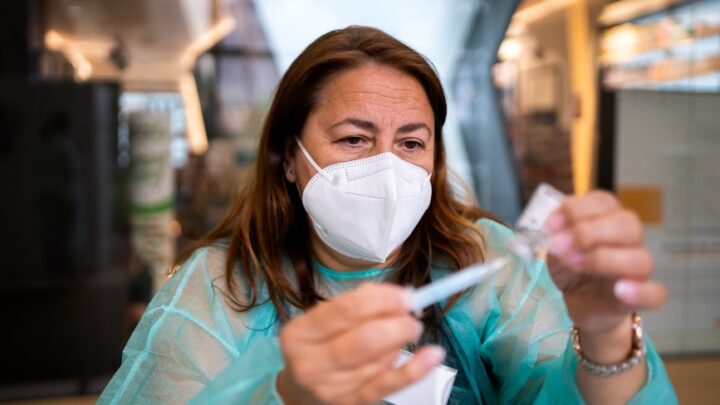
The CDC is recommending that everyone aged six months and older receive the updated Pfizer or Moderna Covid vaccines. In a recent poll of 580+ global Sermo physicians, 66% said they agree with this recommendation, and they will advise all their patients to get the new vaccine; and 69% said they plan to get the vaccine themselves.
However, 69% revealed they do share some of the C.D.C. advisers’ reservations about recommending the new Covid vaccines to younger adults—especially given the fear of potential side effects in some children and young males.
76% said they understand why some advisers are worried that endorsing the vaccines for all Americans might undermine messaging about the greater need among those who are at highest risk from Covid, especially older adults.
According to the New York Times, “[T]he committee ultimately voted to endorse the new vaccines for everyone, citing data showing the short- and long-term risks of Covid at any age.
‘It’s clear that vaccination is going to prevent serious illness and death across all age groups,’ said Dr. Beth Bell, a professor of global health at the University of Washington.
The panel made recommendations only regarding the updated Covid shots by Pfizer and Moderna. The timing and number of recommended doses varies with age and prior immunizations, but most Americans should receive at least one shot, the scientists said…
The most vulnerable Americans — older adults, immunocompromised people and pregnant women — ought to receive both the Covid and the flu vaccines, experts said. Adults 65 and older accounted for up to 85 percent of flu-related deaths in recent years, according to the C.D.C…
Even among the relatively young and healthy, Covid poses serious health risks, including long-term effects on the heart and other organs that can emerge and re-emerge months to years after the initial illness, Sharon Saydah, a C.D.C. researcher, told the scientific panel.
Dr. Saydah presented preliminary estimates from the 2022 National Health Interview Survey suggesting that the highest prevalence of post-Covid symptoms occurs among adults aged 35 to 49 years: 9 percent reported health problems at least three months after the first acute illness…”
Here is more of what Sermo physicians have to say on this topic—their medical perspectives and opinions—in their own words:
I plan to advise all 3 shots: RSV COVID and flu.
—Pediatrics, U.S.
The CDC pushing for Covid injections for those age 6 months??! What is the basis for giving this to babies, some of whom don’t even have their full immune systems developed? What about safety in these babies? Does the CDC care?
—Psychiatry, U.S.
I would only recommend to the immunocompromised.
—G.P., Spain
My husband and I are scheduled for the new COVID vaccine on Thursday…
—Family Medicine, U.S.
I literally just got it an hour ago. Why would I want to risk being even mildly sick if I can avoid it?
—Radiology, U.S.
“As a doctor, my recommendation regarding the new Covid vaccine booster for all patients aged 6 months and older would be based on a thorough assessment of individual factors. While the CDC has issued a broad recommendation, I would consider several key factors, including the patient’s medical history, risk factors, prior vaccination history, and their concerns or allergies. Safety and efficacy data for the updated Pfizer and Moderna vaccines would also play a significant role in my decision-making process. Additionally, the public health context and the prevalence of Covid-19 in the community would be important considerations. Ultimately, my recommendations would be personalized to each patient to ensure the best possible protection against Covid-19. In making a recommendation, I would also consult with colleagues and infectious disease experts, especially for complex cases. It’s crucial to strike a balance between individual patient needs and the broader public health considerations when deciding on Covid vaccine boosters.”
—G.P., Turkey
Unless I have more evidence, I’ll only seriously recommend new vaccine to persons at highest risk. Let’s face it. It’s hard to measure the benefit of the new vaccines in most populations.
—Family Medicine, U.S.
Covid will become a seasonal disease like influenza that will continue to mutate, so there must be an annual vaccination with the new strains to continue with the downward mortality rates. Governments should not neglect the basic vaccination schedule to continue abolishing childhood diseases.
—G.P., Mexico
In our experience in pediatrics influenza and RSV are way more dangerous to most kids than covid. It is a different story for older adults.
—Pediatrics, U.S.
Although restrictive measures are no longer necessary, prevention with vaccines should continue for all groups since there is still prevalence.
—Anesthesiology, Mexico
Do not recommend giving the new booster COVD shots to young children or women that are pregnant or trying to be. Most important shots for my patients in general are the flu and pneumonia ones …..also tetanus for the more active working crowd. The vaccines of most value though vary – depending on the person and their individual circumstances – and that is something that some people don’t like to hear / tolerate.
—Family Medicine, U.S.
Vaccination for COVID is an important factor in limiting the effects and deaths due to this infection. Unfortunately, not all countries in the world will have access to the advances of the new vaccines, either for economic reasons and sadly for political reasons.
—G.P., Mexico
Interested in more? Check back any time and follow us on Facebook, Twitter, and LinkedIn for the latest and greatest in physician insights.
Are you a physician or healthcare practitioner?
Explore the many benefits of Sermo’s medical community and join in on all the exciting conversations when you sign up for free today.
Everyday thousands of Sermo member physicians from diverse backgrounds and experiences exchange knowledge with each other. Sermo is the original medical social network that empowers today’s physicians. Over 1 million fully verified physicians across more than 150 countries come to our platform to talk with peers, participate in paid medical studies, solve challenging patient cases, contribute to the world’s largest database of drug ratings – and enjoy a few laughs along the way.














